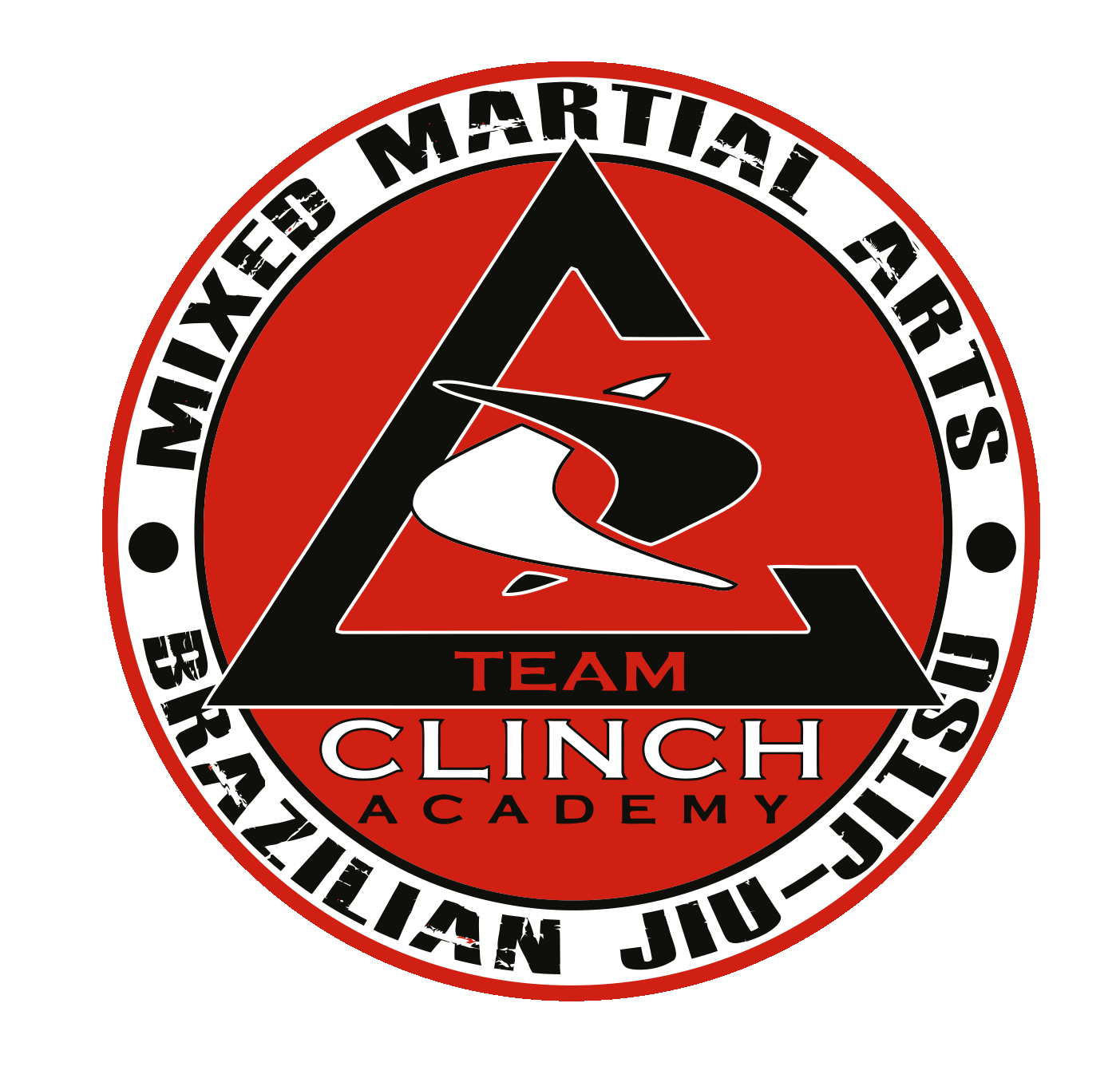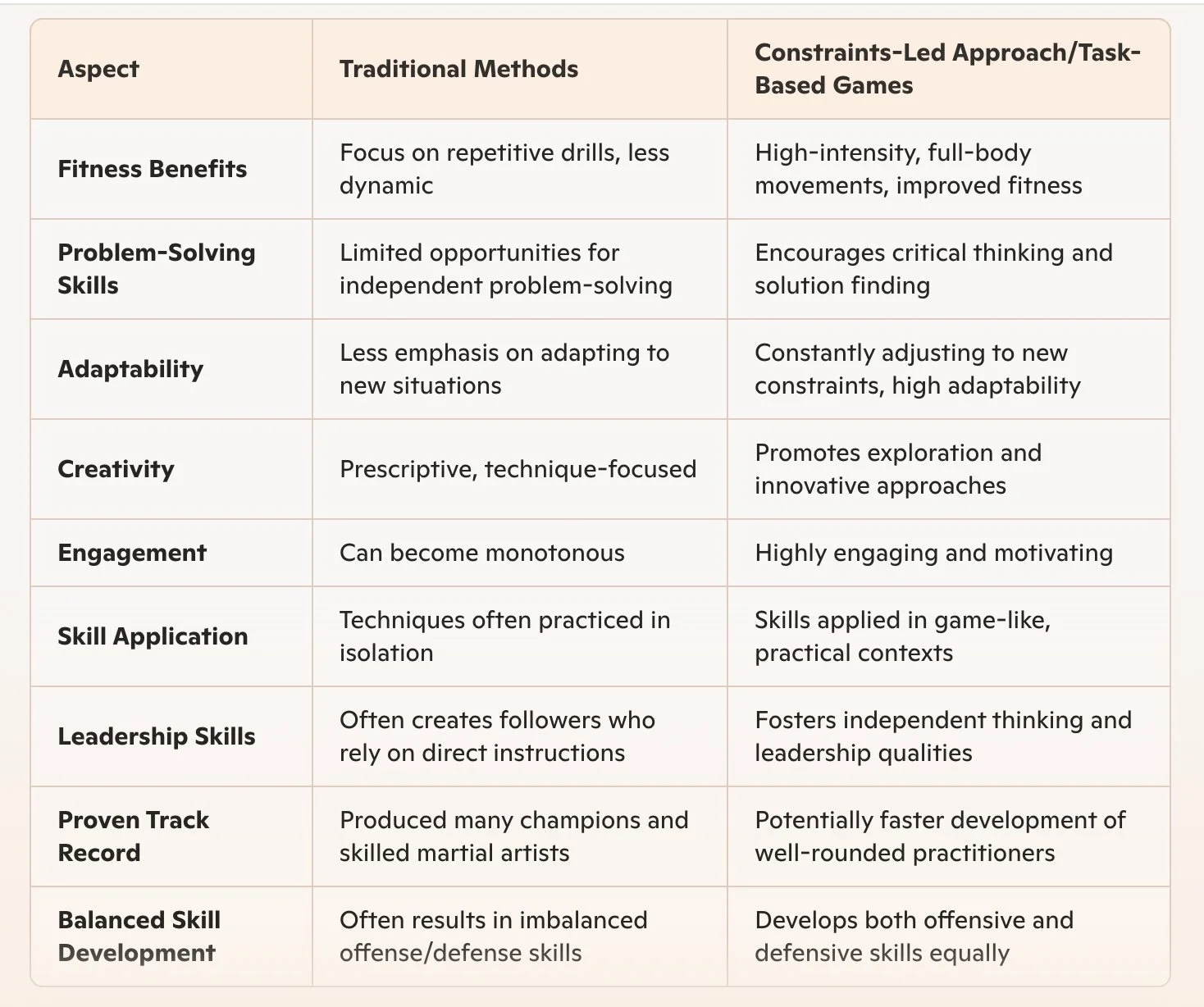Constraints-Led Approach to BJJ
Comparing Coaching Methods in Brazilian Jiu-Jitsu: Constraints-Led Approach vs. Traditional Methods
Brazilian Jiu-Jitsu (BJJ) coaching has evolved significantly over the years. While traditional methods have their merits, modern approaches like the Constraints-Led Approach (CLA) and Task-Based Games are gaining popularity. In this blog, we will compare these methods and explore their benefits, particularly focusing on how the Constraints-Led Approach enhances fitness, problem-solving skills, adaptability, creativity, and leadership skills, and balanced development in both offense and defense.
Traditional Methods of Coaching
Traditional coaching in BJJ involves prescriptive instruction, where coaches provide explicit directions on techniques and movements. This method emphasizes repetition and drilling specific moves to ingrain them into muscle memory. The primary focus is on perfecting individual techniques through consistent practice.
Value of Traditional Methods: It's important to recognize that traditional coaching has produced many champions and excellent martial artists over the years. The consistent drilling of techniques builds a strong foundation and has been a tried-and-true method for developing skilled practitioners. However, it often results in imbalanced development, with athletes excelling more in either offense or defense, rather than both equally.
Constraints-Led Approach (CLA) and Task-Based Games
The Constraints-Led Approach (CLA) focuses on manipulating constraints to guide learning. These constraints can be individual, environmental, or task-related. Task-Based Games involve creating game-like scenarios that mimic real competition, allowing athletes to apply their skills in a practical context. This method encourages athletes to explore, adapt, and make decisions independently, fostering stronger leadership qualities and balanced skill development.
Benefits of Constraints-Led Approach and Task-Based Games
Enhanced Fitness
Task-Based Games offer an engaging, dynamic way to improve physical fitness. Unlike traditional methods that focus on repetitive drills, these games incorporate high-intensity, full-body movements, enhancing cardiovascular health, strength, and agility.
Problem-Solving Skills
CLA training encourages athletes to find their own solutions to challenges. This approach helps students develop critical thinking and problem-solving skills, which are essential both on and off the mat.
Adaptability
By constantly adjusting to new constraints, athletes become more adaptable and responsive to different situations. This adaptability is crucial in real-life scenarios where conditions are unpredictable.
Creativity
CLA promotes creativity by allowing athletes to explore various techniques and strategies. This freedom to experiment leads to innovative approaches and a deeper understanding of BJJ.
Leadership Skills
The CLA method fosters independent thinking and decision-making, essential qualities for leadership. Athletes learn to take initiative, make strategic choices, and lead by example. This contrasts with traditional methods that often produce followers who rely on direct instructions from coaches.
Balanced Development in Offense and Defense
The dynamic nature of Task-Based Games ensures that students develop both offensive and defensive skills simultaneously. Traditional methods often focus more on specific techniques, leading to an imbalance in skill development. CLA encourages a holistic approach, ensuring students excel in all aspects of the sport.

